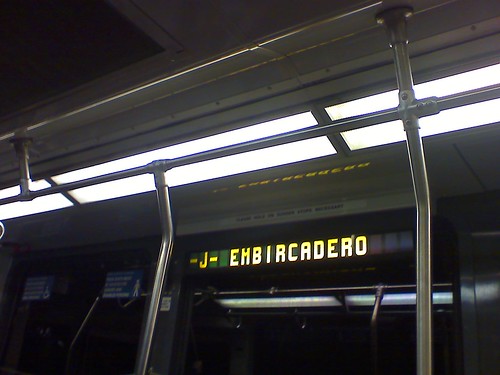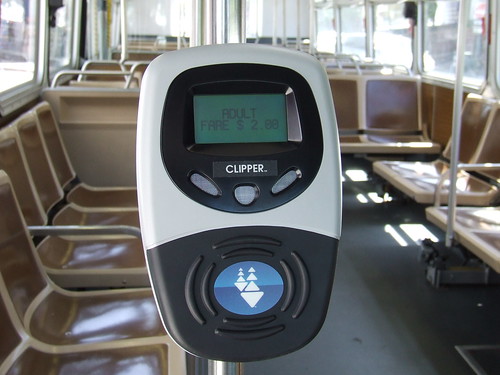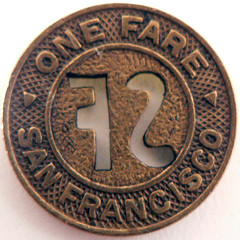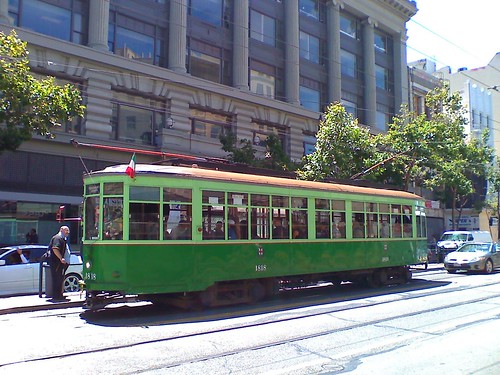
I believe it's time to ask for more Clipper card vendors to accept commuter debit cards.
If you don't know what a commuter debit card is, it's the ones issued by major transit benefit companies like Commuter Check and WageWorks. Instead of sending you a voucher or your passes in the mail on a monthly basis, you get a debit card when you sign-up for it and the funds will automatically load to the card every month.
You just can't use this debit card at any place that sells transit media, it has to be a specific place that ONLY sells transit media, such as a Muni ticket booth at Presidio and Geary, a transit ticket automated machine like at all BART stations, or a vendor that only sells transit media like the third-party ticket sales booths at Embarcadero station. The reason behind that is, you can't use the funds on the card to buy anything other than transit passes, thereby using the card at Walgreens (which also sells passes on Clipper) would be prohibited because the data returned to the commuter benefit company would say what type of business is it, like "grocery store" or "pharmacy." If you have ever looked at your own personal credit card statement, most of the time it will say the description of what the vendor normally sells, not what specific items you bought.
I think it might be time for Clipper to consider getting more local businesses to accept the debit cards by giving them a separate debit card machine to handle it specifically for Clipper card purchases. The demand to purchase Clipper media grows by the day, and people want the most options available. People with debit cards in SF have very limited options beyond all the Muni metro stations and the two sales booths at Presidio & Geary and Powell Cable Car turnaround; there are a few Clipper add value machines that can purchase Muni passes such as the Golden Gate Ferry terminal and the Temporary Transbay Terminal, but there's no debit cards accepted in areas beyond the downtown region (Market street between Castro and the Ferry Building) and Forest Hill/West Portal area.
Maybe Walgreens can add a separate debit card machine to handle it; SF State doesn't accept debit cards, but will accept vouchers, why not them? The debit card is a much easier option because you get one card good for many years, saving trees by not mailing items on a monthly basis, and gives people flexibility to change from a pass to e-cash in situations where they may be going on a planned vacation.
Some of you may be saying, how about buying Clipper media online? Sure, they accept the debit cards online, but as we all know, the 5-day delay sucks, especially when you need the pass or e-cash funds immediately.
Why did I even write about this?
My mom gave me a call because she knows I'm some transit expert (Akit in the house!). She told me she waited in a 30 person line at the Presidio & Geary Muni sales booth to purchase her September "M" pass and with only one person at the booth, it took nearly an hour just to buy it with her debit card. It made me wonder if her neighborhood Walgreens could eventually be able to accept those cards to pay for her pass without the long wait.












